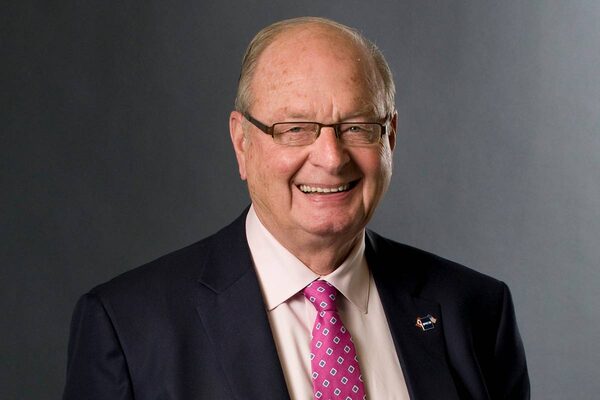
Hugh Bolton, chair of EPCOR Utilities and one of this year’s EGA winners, says good corporate governance is the foundation of a good company: “It’s just common sense.”
On Hugh Bolton's desk sits a picture frame that contains an expression: fix the problem, not the blame.
Bolton, chair of EPCOR Utilities, says this expression is "ingrained in my brain". It reminds him to guide and lead with honesty, courage and strength to achieve the best outcomes.
That's one reason why Bolton is this year's winner of the Peter Dey Governance Achievement Award from the Governance Professionals of Canada (GPC). It recognizes outstanding contributions by an individual to corporate governance in Canada, the way companies are governed and regulated, or how they communicate with investors and the wider community.
In thinking about that importance Bolton recalls the height of the financial crisis, in 2008, when EPCOR decided to spin off its power generation business. Instead, it moved to invest in water and power distribution and transmission regulated utilities. It was a big gamble, as 60 per cent of EPCOR's earning came from its power generation segment.
This pivotal point in the company's existence required a strong sense of corporate governance, to capture the opportunity and mitigate the risk to stakeholders. For Bolton, whose career has spanned more than five decades, business isn't only about developing solutions for the world's challenges; it's about doing so with integrity and accountability.
"It's just common sense," he says. "If you don't get corporate governance right, you're not going to succeed in whatever your strategy or mandate is."
With Bolton's steadfast leadership and eye for growth opportunities, his company made itself an international powerhouse in the water sector with more than $789-million (U.S.) in U.S. acquisitions since 2011. EPCOR US is now one of the largest private water utilities in the southwestern states.
Bolton will turn 80 next May, and says he can't imagine a day when he doesn't get up and go to work.
He has spent half his life, 40 years, as a senior business executive, including Chief Executive Officer at Coopers & Lybrand (which is now known as PricewaterhouseCoopers). That gave Bolton a front-row seat to corporate governance practices from the big and small. It taught him that good governance begins in the boardroom.
"It starts with making sure you have a board that is diverse. It's important to have people sitting across from you who think differently from you," he says. "The worst thing a board can do is to fall into groupthink. You need to surround yourself with people that have the courage to speak up and speak out if their ideas are different from others."
As one of Canada's most distinguished corporate directors, Bolton has presided over monumental moments for the country's biggest enterprises. That includes CN, which thrived under Bolton's tutelage to become the most cost competitive rail company in North America.
Executing on strategies can be tough, but strong communication with the people that make up a company is paramount to this task. "You have to deal with people honestly," says Bolton. "Being honest with someone is the greatest compliment one person can give another."
As the recipient of the GPC Peter Dey Governance Achievement Award, Bolton says he's honoured to be in such respected company. Past winners include Kathleen Taylor, Chair of the Board, RBC and Peter Dey, himself, Chairman of Paradigm Capital and considered Canada's "godfather of corporate governance".
It was Dey whose 1994 report set the stage for ongoing efforts to improve governance practices. "A corporation is more competitive and better able to create value if it is well governed," Dey has stated.
Bolton has long put that philosophy into action. "I've been fortunate in my career to work with and learn from some of the most impressive directors in the country and I want to continue to do that," he says.
For Bolton, the challenge that keeps him going is adapting and growing to keep up with the ever-changing business landscape.
"My greatest fear as a board member is waking up one morning and thinking, 'I never thought of that.' Today we spend a lot more time being forward-thinking, from climate change to socio-economic. That's critical."
This content was produced by The Globe and Mail's Globe Edge Content Studio. The Globe's editorial department was not involved in its creation.